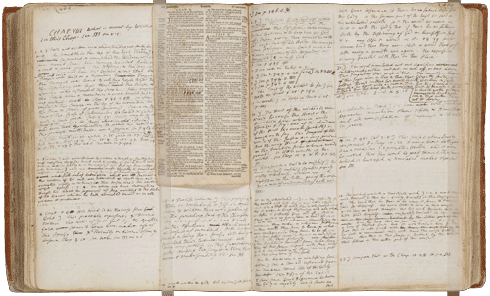Tuesday, April 26, 2011
The Other
A friend -- during a recent visit to South Africa -- had a discussion about Apartheid with a man born in 1977. This man had lived in both the old and new South Africa and had reason -- my friend believed -- to have a unique insight from the inside. But this man was puzzled by her interest. He admitted that he hadn't really noticed Apartheid until it was officially repealed. Life had seemed normal to him. The separation and subjugation of indigenous peoples had been completely invisible.
I wonder how much of our own treatment (and mistreatment) of others is similarly invisible. I wonder how our progressive but infrequent stands "for the other and marginalized" look to those who are genuinely "other and marginalized." And I wonder if it's possible for those of us on the inside to work for change.
Sunday, April 24, 2011
Choosing
Thursday, April 21, 2011
Reading
We do a disservice to the faithful (and to the scriptures) when we insist that they read in a certain way and from a certain perspective. It's fun to explore, to imagine, to re-think, to challenge. It's creative. What if we could learn to encounter both God and scripture in the way we often encounter those closest to us -- with a sense of play?
Friday, April 15, 2011
Poverty
How do we overcome the American belief in unlimited resources and unlimited opportunity – a belief that makes us less likely to share with the needy, more likely to see their poverty as the result of poor choices?
Thursday, April 14, 2011
Not Knowing
The recognition that I don't really know -- that I'm not in control -- helps me be humble. But I don't settle into the complacence of I'm-not-God-but-He-knows-what-He's-doing thinking. Instead, I choose to live in the tension of not knowing, a tension created by the sense that these questions matter and that the search for an answer may not result in definite conclusions, but it certainly will get me closer to a kind of understanding, to a kind of sensing, to discernment.
Wednesday, April 06, 2011
Stranded
The phone booth in the desert – a kind of secular
confessional – gave many of these characters their only
meaningful (and vulnerable) human connection.
There’s a phone booth that used to stand in the Mojave Desert, 8 miles from the nearest paved road, 15 miles from the nearest numbered highway, miles and miles from any buildings. It’s telephone number was (714) 733-9969. The booth was eventually removed, but there had been a time in the 1990s in which a man, who claimed direction from the Holy Spirit, camped at the booth for more than a month, answering the calls that came in each day (more than 500 in all).
A movie was made, Mojave Phone Booth, one of the most tragically comic films I’ve ever seen. I sat for a screening at the Boise International Film Festival, a screening punctuated with loud laughter as audience members connected with the painfully funny moments of space-alien paranoia, a botched suicide, an out-of-work administrative assistant sucked into a lucrative ménage-a-trois, a desperate man who breaks into his girlfriend’s car and steals her stereo system (four times) in an attempt to convince her that she’ll be safer living with him.
It’s not that people in Boise, Idaho, are weird enough to have shared similar experiences. Instead, these impossibly strange scenarios perfectly illustrated the common American phenomenon in which we long for intimacy while resisting commitment. The phone booth in the desert – a kind of secular confessional – gave many of these characters their only meaningful (and vulnerable) human connection.
In the movie, there was a woman on the other end – an older, English-accented lady with a fondness for Canada – who several times a day placed calls to the booth and spoke with whoever answered. She listened to them. She asked questions. Sometimes she offered advice. In the movie, she had started calling the booth seven years earlier, seeking to connect with someone, anyone. Instead, she discovered a calling in listening to the problems of those on the other end.
While watching this film, I was overcome by the work of God reflected in the care offered by this woman, her continued calls, her endless patience with and for the pain of others, her love for a people stranded in the desert, looking for direction.
At Barclay Press




